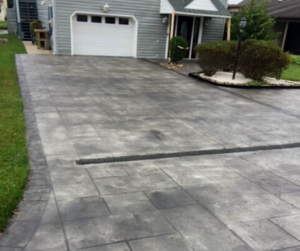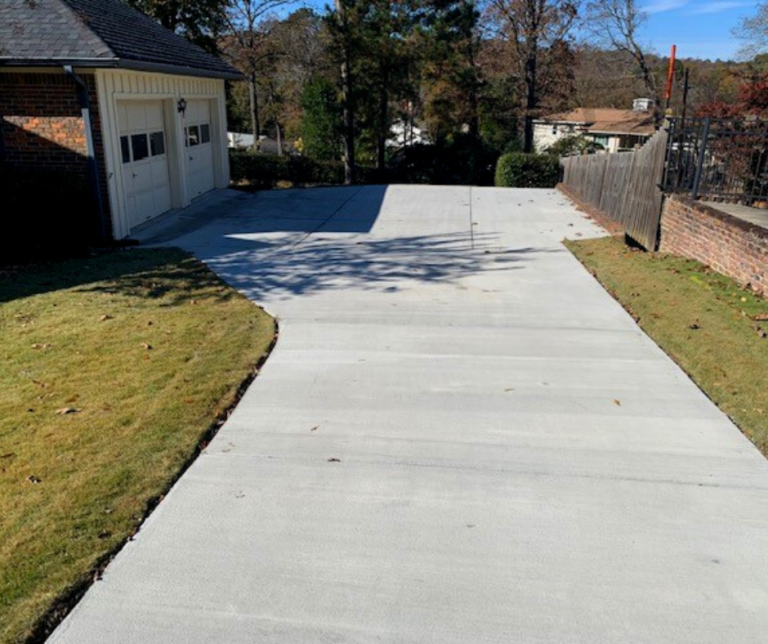How to Take Care of a Concrete Driveway
Is your driveway concrete? Here's how to take care of it
A lot of homeowners like to go for a natural stone or decorative concrete for their driveway, but with concrete, there is maintenance and care required. While this is primarily to protect the concrete from cracking, the proper care will also help keep your driveway looking good in the long-run. Knowing what preventative steps you can take, how to clean concrete, and what chemicals you should avoid will all help keep your driveway functioning and save you money on repairs. So if your driveway is concrete, read on to see what you should be doing.

Preventative care and sealing
Proper care and maintenance of a concrete driveway can provide long-lasting benefits and minimize cracking and future damage. Here are some ways to care for your concrete driveway:
- Mowing your lawn: This will prevent weeds from growing in the area and prevent mud from being tracked onto your driveway.
- Avoid excessive water: Avoid allowing sprinkler overspray or standing water whenever possible. When too much water seeps into the foundation, cracking can occur.
- Treat your concrete with a sealer: Simply applying a sealer to your concrete driveway will help prevent damage from vehicles, chemicals, and weather.
How to clean your concrete
If you have a concrete driveway, you need to be sure to clean it. Keeping the concrete clear of dirt will reduce the need for high pressure washing. There are a few simple steps that you can follow to clean your concrete. With just some water, dish soap, and a scrub brush, you can spot clean any areas that may be discolored. Using a pressure washer as often as once a year is okay, but you’ll need to make sure it is the proper PSI for your concrete to avoid damaging your driveway.

Things to avoid
A concrete driveway is a very important investment for your home and should be properly maintained and protected from chemical elements. Avoid using harsh chemicals like acids and chlorine. The acid can eat away at the concrete, and the alkaline can eat away at the aggregate. It’s also important to avoid using deicing products on your concrete driveway. If you live in an area prone to frost and ice, you can substitute sand-based products to help with friction. Lastly, you want to avoid overusing high water pressure. It can be done up to once per year if needed but anything more than that, you run the risk of damage and cracking.
If you just had a new driveway installed or you’re moving into a home where the driveway is concrete, it’s important to follow these tips and tricks for proper care. When in doubt, it’s always good to reach out to a local contractor and ask for advice.
Home | Locations | Gallery | Commercial | Residential | Privacy Policy | Blog
© Copyright 2022 Sam The Concrete Man. All Rights Reserved.
Powered by Epoch

